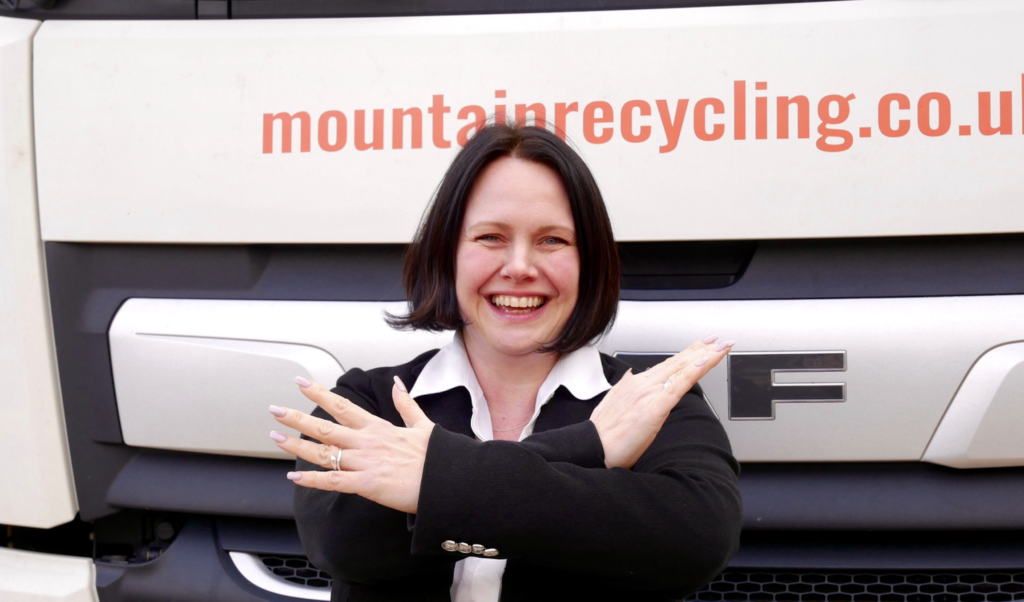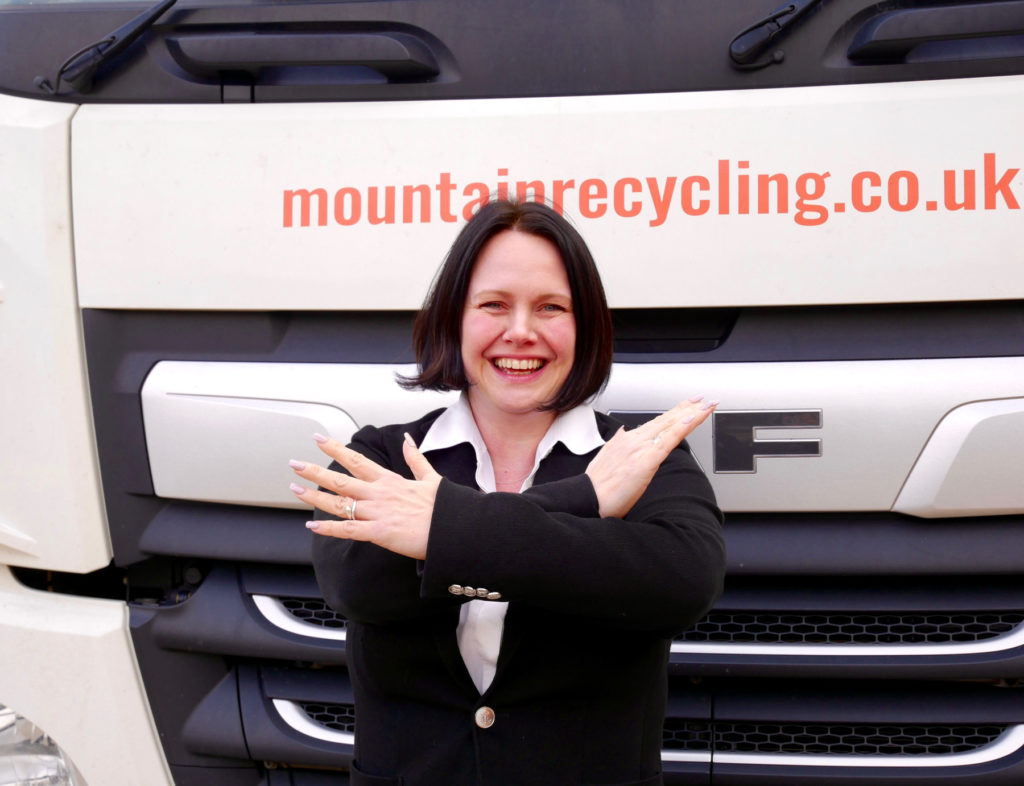International Women’s Day – Q&A’s with Abigail Johnson, Director Mountain Recycling


Abigail Johnson joined the team in 2020 and was responsible for developing the trade waste division of Mid UK, Mountain Recycling.
Why do you think it is important to celebrate International Women’s Day?
I think it is important to celebrate the success of women in
the workplace, absolutely I do. However, I think we must
also question why it is necessary for us as employers and
businesses to do so. By demonstrating the success of women in our workplace I
hope that this will inspire others, and impart the belief in younger women joining our
business that they can have fulfilling careers and accomplish their goals.
• Have you faced any barriers in your career due to being a woman? If so, how did you overcome them?
Yes many, and unfortunately many are still there even today, and will continue to be
for many more women. Breaking the bias requires effecting cultural change not just
in workplaces but also in the wider communities within which we live. I have always
been of the volition that barriers were there to be broken, that misguided opinions or
an initial lack of confidence in a woman doing a ‘man’s job’, are the weaknesses of
that opinion owner, not my weakness. That if I was knocked back to just stand back
up and try another way. I have had the resilience to keep pushing and challenging
the status quo that many of my former peers did not. That is in no way to say that
many other women could not have achieved the same, but that the barriers are often
perceived as too high, the perceived sacrifice too much, for many more than capable
of succeeding to not do so and to not realise their potential.
• What is the most important piece of advice you have been given?
You cannot do everything, but the right team of people can. Observe, listen, then
make your decision – make the right decision.
Being an effective leader is about understanding your objectives and not deviating
from delivering them. For me it is about the team, knowing the skill sets you need to
succeed, to fulfil the objective set, then finding those people and inspiring them to
follow your vision.
• How can we encourage more women to pursue entrepreneurship or senior leadership roles in their career?
By creating an environment where everyone, regardless of their gender, is valued and
motivated. By doing so we create confidence, employees thrive and develop their
skills, but also their individual aspirations for their future. We simply need to provide
the right environment in the greenhouse and proudly watch at what type of plants
develop from the seeds we nurture and be amazed at how high they will eventually
grow.
• What is the most important message you want to send out to young women thinking about their careers?
Know you own self-worth, be empowered, and challenge your own aspirations. The
only person that can limit your success is you and by focusing on your accountability
for your own success, you will without realising be a driving force for change and
ultimately carry many with you on that journey.
• Is there anyone that inspires you in your career?
My children, particularly my daughter. I hope that I have and will continue to be an
example that hard work and determination matter. That she can be who she dreams
of being no matter what her aspirations are or whatever career she chooses. I was
told many time that this / that was a man’s job or strange seeing a ‘girl’ in this role –
those are words I sincerely hope that she and others from her generation do not have
to hear, and potentially dissuade them from a fulfilling career paths.
• Why do you think diversity in the workplace is so important?
Successful teams require diversity of gender, personality, and skills, and we need to,
no we must, understand this as employers. By creating a diverse team, you set the
foundation for success, the bubbling pot for ideas, resilience and the environment
where everyone thrives, and bounces off each other.
• If you could have dinner with three inspirational women, dead or alive, who would they be and why?
Difficult one this as my go to dinner date would be Stephen Fry. So firstly, I would
love to meet and chat with Angela Merkel – she has clearly amazing leadership and
team building skills and it is clear that people of all political persuasion think a lot of
her. I would be interested to see how she overcame bias, if indeed she experienced
any. She was a scientist first, a field at the time she was embarking on this first career
that was very male dominated. Then to enter politics was another interesting career
path. My next guest would be Janet Yellen- previous Chairwomen of the US Federal
Reserve and first woman to hold this role and she is now Secretary of the Treasury –
again first woman to hold this role. I don’t think I would ask many questions just
listen intently to her journey and anecdotes along the way. My third and final guest
would be Eleanor of Aquitaine – whomever (regardless of being a woman or not) can
lead many armed conquests, revered by her armies and survive the middle ages is a
bad ass I would love to meet!
• What does IWD and its theme this year, #BreaktheBias, mean to you?
I am proud to taking part in IWD this year and to be able to showcase the success of
my team, many of them women. I feel a responsibility to those women embarking on
their own career journeys to provide my support, encouragement and make them
believe that they can succeed. Their future journeys should and must be achievable,
barriers removed, and we all look at the best person for the job, not their gender.
• What would you change about the world for women if you could?
That every woman has an equal chance regardless of where they live, their sexuality, or
what religion they are born into. We just want a level playing field.
• In your opinion, how do our individual actions, conversations, behaviours and mindsets have an impact on our larger society?
We would all be forgiven for thinking that the task is overwhelming and that that the
bias can not be changed in our lifetimes. The actions of individuals, collectively
made, consciously delivered, together can change a culture. We all need to do our
bit and we all should be mindful that the encouraging comment, the gesture of
support, the recognition of success well deserved; may have a much bigger impact
that we could imagine on the individual that receives them and others that are
watching you and making the decision to change their own outlook as a result.
